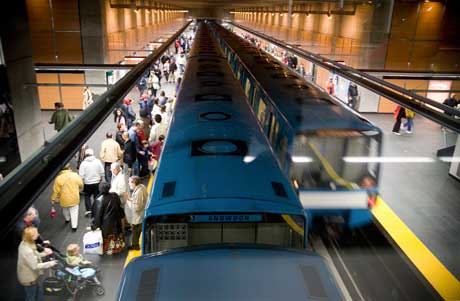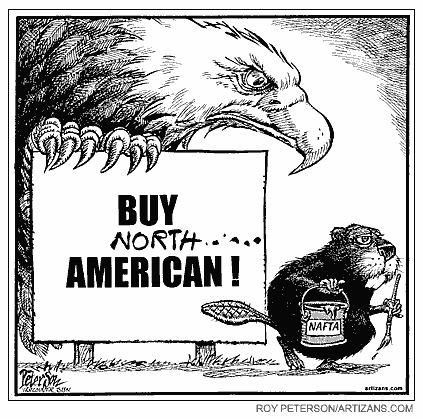Europeans miffed over Montreal subway deal as trade talks resume with Canada

Montreal Gazette | October 18, 2010
Europeans miffed over Montreal subway deal as trade talks resume with Canada
By Andrew Mayeda, Postmedia News
OTTAWA — As Canada and the European Union kick off their latest round of trade talks, European officials are still fuming over Quebec’s decision to lock international bidders out of a $1.2-billion contract to supply subway cars in Montreal.
Earlier this month, Quebec Premier Jean Charest announced the contract would go to a consortium led by Montreal-based aerospace firm Bombardier, without allowing foreign firms to bid. The cars will be assembled at a Bombardier plant in La Pocatiere, a town northeast of Quebec City where Charest’s Liberals are vying to retain a seat in an upcoming byelection.
The Charest government has introduced legislation to fend off legal challenges under global-trade law.
But European officials say the deal sends the wrong signal on the issue that comes closest to being a deal breaker for the EU in its trade negotiations with Canada: the ability for European companies to bid on lucrative provincial and municipal contracts across Canada.
With most of the non-contentious issues solved, negotiators are entering what both sides expect to be the toughest phase of the talks, first launched in May 2009.
"This is going to be the challenging round of negotiations," federal Trade Minister Peter Van Loan said in an interview Monday. "We’ve been dealing with the easier issues and leaving the tougher work until later, and so now, we’re into the tougher work."
Next to Canada’s trade relationship with the United States, clinching a trade agreement with the European Union — the biggest economic block on the planet — is the Harper government’s biggest priority on the trade front, said Van Loan. The Canadian government estimates a deal would increase Canada’s GDP by $12 billion, or 0.77 per cent, by 2014.
If the trade negotiations get sidetracked, Canada has more to lose than the EU, which would only see an increase of only 0.08 per cent to its GDP from a deal.
Although the federal government is leading the talks, the provinces and territories are key to sealing an agreement. The Europeans have asked provincial governments to make explicit commitments to open the bidding process on infrastructure projects, such as roads and bridges. For the first time, provincial and territorial representatives have actually been given a seat at the negotiating table.

Van Loan said the purpose of involving the provinces directly is to avoid another trade debacle such as the dispute over Buy American provisions in the U.S. government’s stimulus package. To help Canadians obtain a waiver on Buy American, the provinces agreed to open their own procurement markets, a commitment that wasn’t included in the original North American Free Trade Agreement.
"With the Buy American experience, it was brought home to the provinces not to take on commitments on procurement during the original NAFTA negotiations," said Van Loan, who hopes to have a deal in hand by the end of next year. "Being left out left Canadian workers and businesses exposed to losing access."
A senior European source, speaking on condition of anonymity, said Quebec’s protectionist behaviour has threatened to undermine the positive atmosphere of the negotiations.
In a recent letter to Charest, Spanish Prime Minister Jose Luis Rodriguez Zapatero expressed "annoyance" that the Spanish firm CAF wasn’t given a chance to bid on the subway contract.
A spokesman for Charest did not immediately respond to a request for comment.
In a recent study, the Conference Board of Canada estimated the potential gains of a trade deal for both sides are considerably larger than expected, when sales of services are taken into account.
"We’re arguing that both sides need to keep a longer-term picture in mind and not get sidetracked by issues that tend to get more air play," said Danielle Goldfarb, associate director of the think-tank’s international trade and investment centre.
But a coalition of Canadian unions argues it would be foolish for Canada’s provinces and territories to liberalize procurement contracts at a time when such contracts could still be needed to stimulate the flagging economic recovery.
Teresa Healy, a senior researcher with the Canadian Labour Congress, said opening the procurement market could create pressure on local governments to privatize public-service providers, such as water utilities.





